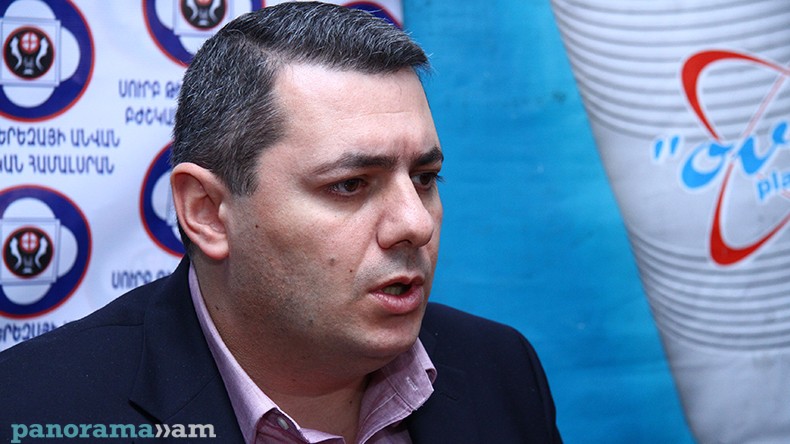
With its steps, Azerbaijan accelerated settlement of the problem, Sergey Minsyan says
Deputy Director of the Caucasus Institute, Sergey Minasyan spoke to Panorama.am about the meeting of OSCE Minsk Group Co-Chairs and Foreign Ministers, Presidents of Armenia and Azerbaijan on Nagorno Karabakh conflict settlement in Vienna.
panorama.am: Mr. Minasyan, would you comment on the negotiations held earlier on Nagorno Karabakh conflict?
Minasyan: I think everything that happened was generally reflected upon in the process. In the statement of the OSCE Minsk Group Co-Chairs it was specifically noted that this meeting would be exclusively directed towards resolution of a number of pressing problems (particularly, the creation of confidence building mechanisms and the maintaining of the ceasefire). Both this statement and the statements of the participants were exclusively about these issues. It was clear that the sides realized that it was useless to speak about any other issues at this point.
It seems that certain progress is expected in this regard. Yet it’s a completely different question whether the Azerbaijani side intends to fulfil the agreements reached or this is just another move to win some time. This would allow returning to the real negotiations process in the future.
panorama.am: Over the past few years, expert, political and public circles pointing out a number of facts, noted that the possibility of resuming the military operations is very little or doesn’t exist at all. Where do you think we failed in our calculations?
Minasyan: Very often, sudden processes can leave certain impression at first, but afterwards completely different one. I don’t consider the April events a large-scale war. In my opinion, this was an unprecedented growth in the escalation, yet large-scale wars don’t progress this way. It’s another thing that spiral development of the current situation could lead to a large-scale war, yet that it hasn’t resumed. From this point of view, it should be noted that the mechanisms preventing Azerbaijan of starting a large-scale war are still operating. On the other hand, any expert, politician or military official tries to perceive and interpret the situation based on more or less rational principles. All the rational estimations of our and a number of international experts indicate that Baku is physically unable to conquer Artsakh or any part of the territory. Azerbaijan is able to begin military operations in some way, but we think that nevertheless Baku administration is able to understand the real picture. Yet sometimes the steps of the leaders are irrational. For example, in 1990, Saddam Hussein decided to conquer Kuwait. The same way, Georgian authorities decided to resume the Georgian-Ossetian war in 2008.
panorama.am: So, do you think that Ilham Aliyev decided to take an irrational step too?
Minasyan: I think that it was a miscalculated move. If Aliyev’s aim was the conquest of Artsakh, he didn’t have any option other than a large-scale war. If the aim was introducing a change in the negotiation process, it appears that the Azerbaijani side didn’t succeed here either. As a result, pressures on the Azerbaijani side increased, and exclusively all the parties talk about introducing confidence mechanisms on the line of contact. With its steps, Azerbaijan in fact accelerated or at least activated the settlement of the problem. Indeed, nothing can be ruled out, yet I think that at this stage resuming the war would be a very dangerous undertaking for Ilham Aliyev.
panorama.am: What do you think is the difference between the events of April and a large-scale war?
Minasyan: Larger quantities and types of weapons must be applied during a large-scale war. The involvement of manpower must be at least 10 times higher than what was recorded in April.
panorama.am: During the whole period, the Armenian side was proposing three main conditions for resuming the negotiations; introducing confidence investigation mechanisms, targeted statements and guarantees that Azerbaijan won’t unleash aggression and terror on NKR people. Do you think a progress was made concerning these issues during yesterday’s meeting?
Minasyan: The most impracticable of these conditions was that of the targeted statements, towards which no progress was recorded. Moreover, if they weren’t made during the April events or immediately after, I think expecting them in the current stage was not realistic. Indeed the introduction of investigation mechanisms on the line of contact was discussed, yet their implementation by Baku, as mentioned earlier, isn’t guaranteed either. Certainly maintaining the ceasefire regime was also discussed. Formally, this issue was reflected upon in the statement of the Co-Chairs, yet its implementation is a completely different question.
panorama.am: What can you say about Artsakh’s return to the negotiation process?
Minasyan: The document that has been on the negotiation table until today implies that at some stage Artsakh must return to the negotiation process. Besides, the Minsk Group statement also touches upon respecting the ceasefire agreements of 1994 and 1995. We shouldn’t forget that these are tripartite agreements. If Azerbaijan wants real negotiations it should first of all negotiate with Stepanakert. I think discussing this issue during yesterday’s meeting wasn’t very realistic.
Newsfeed
Videos






























